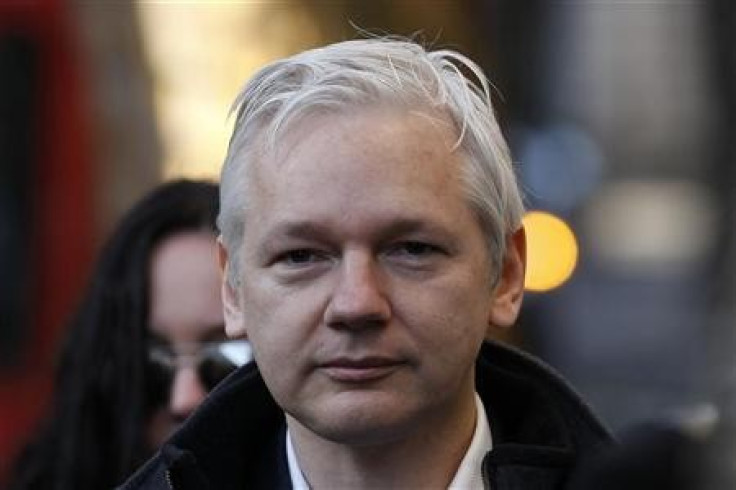WikiLeaks Founder Julian Assange Loses Appeal against Extradition to Sweden to Face Sex Charges
Supreme Court rules in favour of European Arrest Warrant lodged by Swedish prosecutor against Assange

WikiLeaks founder Julian Assange has lost his appeal to the Supreme Court over his extradition to Sweden where he will face sexual assault allegations.
"The Swedish public prosecutor is a judicial authority," Lord Philips, the president of the Supreme Court, said. "The request for Assange's extradition has been lawfully made and his appeal has been dismissed."
Philips said the decision of the Supreme Court was five to two and the point of law on the prosecutor's right to order extradition had not been simple to resolve.
The 40-year-old Australian did not attend the ruling.
Assange could still appeal to the European Court of Human Rights (ECHR), which will respond within 14 days.
However, if the ECHR takes the case, it will not extradite him until the case has been heard.
In London supporters for Assange gathered outside the Supreme Court before he received the result of his appeal.
The Supreme Court's ruling does not deal with the substance of the accusations.
Assange took a trip to Sweden in 2010 after which he was accused by two women of unlawful coercion and sexual misconduct including rape.
The computer expert has denied allegations, calling them a smear. Women's lawyer claim allegations have nothing to do with WikiLeaks work.
Prosecutors in Sweden ordered Assange's extradition. In Britain, only judges can approve it.
Assange's lawyers argued that the Swedish prosecutor is not a proper judicial authority and only an impartial court should issue a European Arrest Warrant.
Swedish lawyers have argued that a judicial authority does not need to be impartial to issue the Warrant.
The Belmarsh Magistrates' Court in February 2011 ordered that Assange should be sent to Sweden to answer the accusations against him. The WikiLekas founder appealed, lost, and then took the case to the Supreme Court.
In February 2012, the arguments revolved around whether a Swedish prosecutor constitutes a judicial authority under the European arrest warrant framework and the Extradition Act 2003 which embeds it into British law.
Dinah Rose QC, for Assange, said it was obvious that a public prosecutor with investigative functions "cannot exercise judicial authority in relation to that individual".
Clare Montgomery QC, for the Swedish Prosecution Authority, urged the judges to reject Assange appeal.
"There is no conceivable breach of fundamental rights involved in such a process," she said.
The Supreme Court has granted Assange lawyers 14 days delay in extradition to prepare for appeal to have case reopened at the ECHR.
Many experts claim it will be unlikely that the ECHR would agree to take the case.
His argument would be valid if he demonstrates that article six of the European convention on human rights, the right to a fair trial, have been breached.
"The only time I think the ECHR has ever said extradition/deportation/removal on these grounds would be in breach is I think Abu Qatada's case this year, in which it said the risk of use of evidence gained by torture would be a flagrant denial of justice," Barrister Carl Gardner, of the Head of Legal blog, said. "Assange's complaint would be much less powerful than that."
© Copyright IBTimes 2024. All rights reserved.






